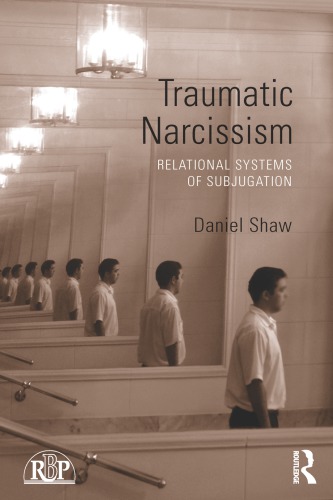

Most ebook files are in PDF format, so you can easily read them using various software such as Foxit Reader or directly on the Google Chrome browser.
Some ebook files are released by publishers in other formats such as .awz, .mobi, .epub, .fb2, etc. You may need to install specific software to read these formats on mobile/PC, such as Calibre.
Please read the tutorial at this link: https://ebookbell.com/faq
We offer FREE conversion to the popular formats you request; however, this may take some time. Therefore, right after payment, please email us, and we will try to provide the service as quickly as possible.
For some exceptional file formats or broken links (if any), please refrain from opening any disputes. Instead, email us first, and we will try to assist within a maximum of 6 hours.
EbookBell Team

5.0
20 reviewsIn this volume, Traumatic Narcissism: Relational Systems of Subjugation, Daniel Shaw presents a way of understanding the traumatic impact of narcissism as it is engendered developmentally, and as it is enacted relationally. Focusing on the dynamics of narcissism in interpersonal relations, Shaw describes the relational system of what he terms the 'traumatizing narcissist' as a system of subjugation – the objectification of one person in a relationship as the means of enforcing the dominance of the subjectivity of the other.
Daniel Shaw illustrates the workings of this relational system of subjugation in a variety of contexts: theorizing traumatic narcissism as an intergenerationally transmitted relational/developmental trauma; and exploring the clinician's experience working with the adult children of traumatizing narcissists. He explores the relationship of cult leaders and their followers, and examines how traumatic narcissism has lingered vestigially in some aspects of the psychoanalytic profession.
Bringing together theories of trauma and attachment, intersubjectivity and complementarity, and the rich clinical sensibility of the Relational Psychoanalysis tradition, Shaw demonstrates how narcissism can best be understood not merely as character, but as the result of the specific trauma of subjugation, in which one person is required to become the object for a significant other who demands hegemonic subjectivity. Traumatic Narcissism presents therapeutic clinical opportunities not only for psychoanalysts of different schools, but for all mental health professionals working with a wide variety of modalities. Although primarily intended for the professional psychoanalyst and psychotherapist, this is also a book that therapy patients and lay readers will find highly readable and illuminating.